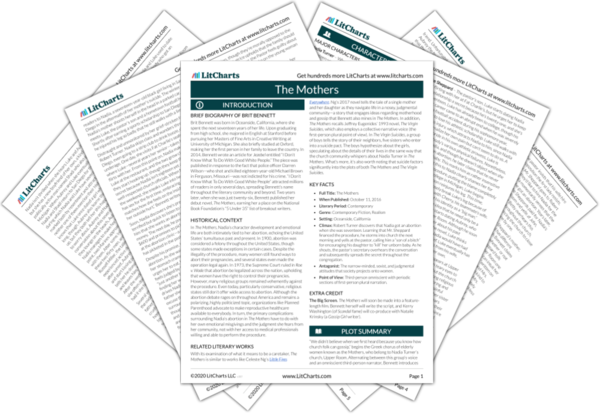With its examination of what it means to be a caretaker,
The Mothers is similar to works like Celeste Ng’s
Little Fires Everywhere. Ng’s 2017 novel tells the tale of a single mother and her daughter as they navigate life in a nosey, judgmental community—a story that engages ideas regarding motherhood and gossip that Bennett also mines in
The Mothers. In addition,
The Mothers recalls Jeffrey Eugenides’ 1993 novel,
The Virgin Suicides, which also employs a collective narrative voice (the first-person plural point of view). In
The Virgin Suicides, a group of boys tells the story of their neighbors, five sisters who enter into a suicide pact. The boys hypothesize about the girls, speculating about the details of their lives in the same way that the church community whispers about Nadia Turner in
The Mothers. What’s more, it’s also worth noting that suicide factors significantly into the plots of both
The Mothers and
The Virgin Suicides 